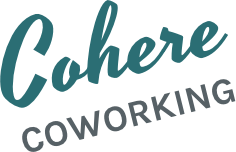A friend of mine recently had trouble saying no. As freelancers and business owners, it can be hard to say no. Someone comes along, offering us payment in exchange for services, and the auto-response is ‘yes.’
But yes isn’t always the right answer. In fact, the more experienced you become as an independent professional, the less you ought to say yes. My friend had trouble listening to her gut when considering a potential new client. She pushed aside the initial personality clash and awkward work/feedback flow, and tried to make it happen. She even let that potential client sucker her into doing “exploratory” work (aka without a contract) while they felt each other out. She kept telling herself that there was no logical reason why she shouldn’t work with this client. They weren’t particularly nasty, rude, or demanding…just a little off. She thought it was her problem and she should muscle through.
Disastrous. After about two weeks of stop and start work, constant assessment, and the client admitting that she was having trouble letting go of a task that she’s had total control of for years, my friend finally found her cojones and said ‘no.’ She realized there were several stages of rationalization during that time period. I share them here in the hopes that all of you will feel more comfortable saying no when you gut tells you to.
Phase 1: Excitement
A new opportunity! I think most freelancers are highly motivated optimists who want to grow their business. They are experts, confident that they can provide what any client is looking for. But just like personal relationships, it’s rarely possible to change people. Unless THEY want to change. The excitement of new revenue starts to fade as you realize you’ll have to make all sorts of exceptions and compromises to make it work.
Phase 2: Guilt
We’ve all felt it. “I should do this because money and because there’s no rational reason not to. I have the time and skills, ect. The only reason I don’t want to do it is that this person irritates me. Or the work irritates me. Or both.” Never dismiss the irritation–it’s you’re soul’s way of saying this is not right for you.
Phase 3: Liberation
This usually occurs when the irritation finally overwhelms any promise of pay, and you realize your soul was trying to keep you from wasting a heap of time. This is why you build contracts that give both parties the right to terminate the agreement for any reason. It’s not going to be easy, but you must find a polite way to withdraw from the situation and realize that if they have a problem it’s on them and not you. The whole point of being master of your domain is to choose your destiny, so why punish yourself by working with the wrong people. Maximize joy AND profit. Otherwise what’s the point?
Phase 4: Abundance
As soon as my friend found a way to say no (and the client was completely whiny and combative about it–further proof of their wrongness) it felt as though a huge weight was lifted from her shoulders. She started the workday with joy rather than dread. Once she said no, the right things almost immediately started to fill the void left by the wrong project. She had two new opportunities that filled her with excitement sitting in her inbox within a week.
Of course, now she knows that excitement can be the tricky first phase of saying no. So she’s proceeding with a lot more caution. And listening to her gut this time.
Have you ever had trouble saying no? Share your experience in the comments.
Image: marc falardeau

